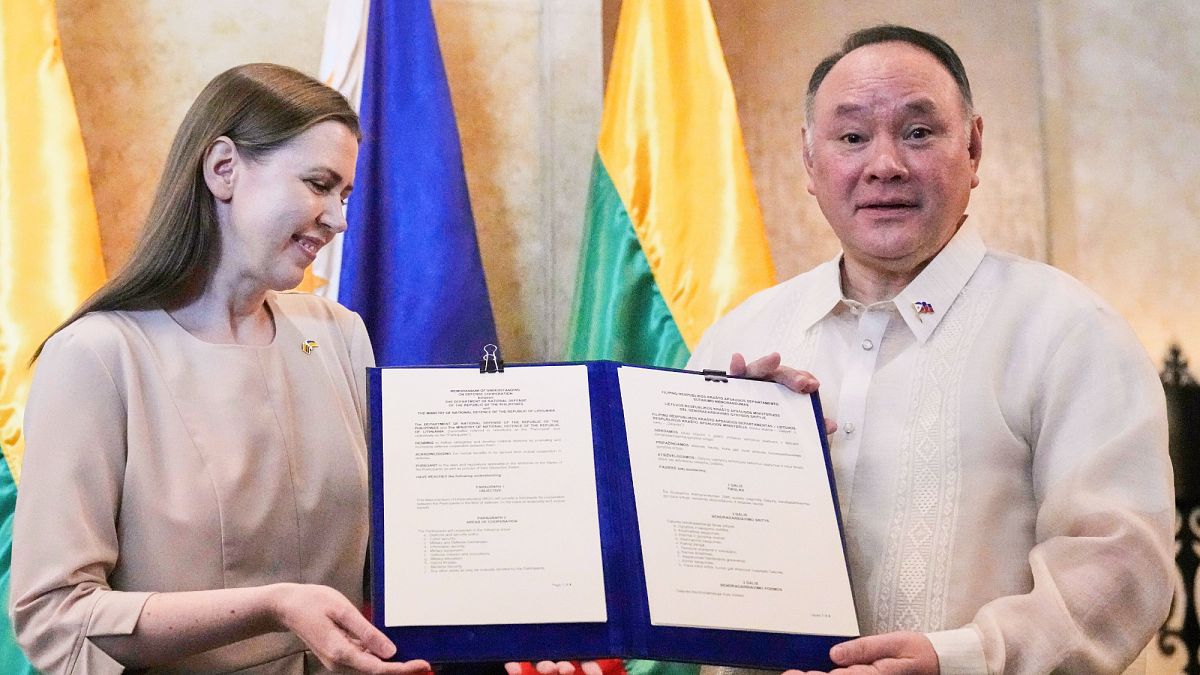

In an ever-evolving global landscape, new alliances and strategic moves are shaping the geopolitical scene. A recent agreement between Lithuania and the Philippines marks a significant coalition aimed at countering the increasing influence of an ‘authoritarian axis’ reportedly formed by China and Russia. This collaboration is seen as a response to ongoing territorial disputes involving several countries in East Asia, including the Philippines, Vietnam, Malaysia, Taiwan, and Brunei. These nations have experienced heightened confrontations, particularly between Chinese and Philippine forces, prompting calls for unity and enhanced security measures.
Meanwhile, the Middle East remains a focal point of tension, with escalating violence in the Gaza Strip. Israel has intensified its offensive in the region following new displacement orders, resulting in the tragic loss of dozens of lives. Amidst this turmoil, there is a glimmer of hope as senior advisors from Israel prepare to engage in ceasefire talks in Washington. This move follows calls from U.S. President Donald Trump to negotiate a peace deal and secure the release of hostages held by Hamas, highlighting the urgent need for dialogue and reconciliation.
In the Western Hemisphere, Mexico faces its own challenges as violence linked to cartel activities surges. The discovery of twenty bodies in Sinaloa underscores the dire situation, marking the culmination of a particularly violent month. Efforts by the government to stem these killings continue, reflecting the ongoing struggle to restore peace and order. Concurrently, a grim discovery in Ciudad Juarez reveals the neglect within a private crematorium, where 381 bodies were found uncremated, sparking concern and a call for accountability.
Further north, a tragic incident in Idaho has unfolded, where a man armed with a rifle started a wildfire and subsequently targeted first responders, resulting in the deaths of two firefighters. This event has cast a shadow over firefighting efforts and highlights the risks faced by emergency personnel in their line of duty. The community is now coming together to support those affected and ensure that such incidents are addressed with the requisite urgency and support.
Throughout these unfolding stories, the common thread is the resilience and determination of communities and nations to address challenges and seek solutions. In Lithuania and the Philippines, security pacts represent a proactive approach to regional stability. In the Middle East, proposed ceasefire talks offer a pathway to peace amidst a backdrop of conflict. Meanwhile, the tragic events in Mexico and Idaho serve as reminders of the human toll of violence and the importance of solidarity and support in overcoming adversity.
As the world continues to navigate through these complex issues, the emphasis remains on collaboration, dialogue, and a shared commitment to peace and security. The focus on diplomatic engagements and alliances underscores the global desire for a future grounded in stability and cooperation, offering a sense of hope and direction as these multifaceted stories unfold.
Source: {link}
